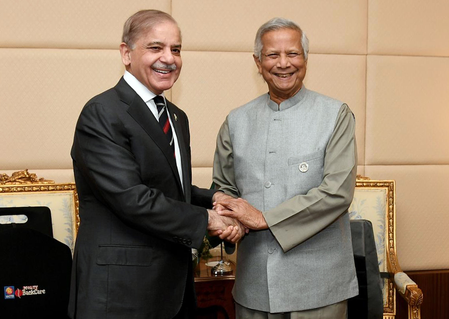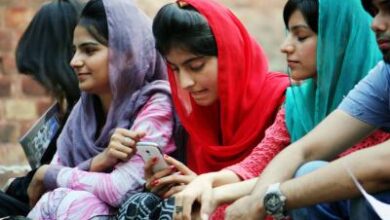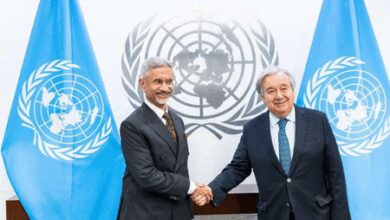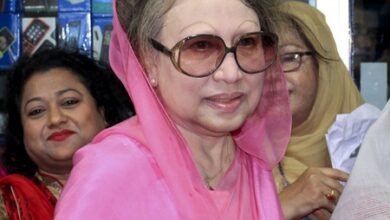Bangladesh entering risky waters in mending ties with Pakistan

New Delhi, Oct 31 (IANS) While Bangladesh and Pakistan held their Joint Economic Commission (JEC) meeting after a gap of 20 years as part of the thaw in diplomatic ties, there is little that Dhaka can gain from a country run by military generals with an economy that is on the brink of collapse.
On the contrary, the relationship is fraught with tremendous risk.
Ironically, the JEC meeting coincided with the visit to Dhaka of General Shamshad Mirza, Pakistan’s second-highest ranking officer after Field Marshal Asim Munir. The twin engagements signal renewed efforts by both sides to strengthen bilateral ties and the shadow of Pakistan’s military establishment over the ties.
However, the harsh reality is that Pakistan’s fragile economy, saddled with a trade deficit that has soared close to a record high of $3.34 billion in September, can offer very little, if anything at all, to Bangladesh.
Bilateral trade between the two countries stands at less than one billion dollars. Bangladesh imported goods worth 787 million dollars from Pakistan in FY2025 and exported only 80 million dollars, mainly jute and yarn.
There is little scope for enhancing these volumes, which is reflected in the fact that no concrete trade targets were finalised at the JEC meeting.
According to an IMF report, Pakistan needs a $7 billion loan to avert a balance-of-payments crisis. Between 2023 and 2026, it must repay about $75 billion in total debt obligations, averaging $25 billion annually – an amount it currently lacks the means to service.
While Bangladesh sees the closer ties with Pakistan as part of its geopolitical posturing amid souring ties with India, the truth is that it appears to be headed back into the shadow of the Generals that call the shots in Islamabad.
Pakistan’s army has expanded its control over various industries, including cement, fertiliser, banking, and agriculture, but it has never been able to achieve sustainable growth.
The military mindset prioritises control and security over productivity and efficiency. This is why the country is constantly in need of bailouts from the International Monetary Fund.
However, the diplomatic thaw has also reopened unresolved historical issues between Pakistan and Bangladesh. Pakistan’s Deputy Prime Minister and Foreign Minister Ishaq Dar recently claimed that “all issues of 1971” had been resolved. Dhaka quickly rejected the claim.
Foreign Adviser Touhid Hossain said, “We acknowledged that the issues of 1971 cannot be solved in a day. But we agreed to keep the conversation going.”
He reiterated that a formal apology, repatriation of stranded Pakistanis, and division of pre-1971 financial assets remain pending.
Although the JEC may fit into the geopolitical posturing of Dhaka and Islamabad, it cannot wipe out the atrocities and genocide perpetrated by the Pakistani generals, which eventually led to the birth of Bangladesh, backed by the Indian armed forces.
–IANS
sps/dan




